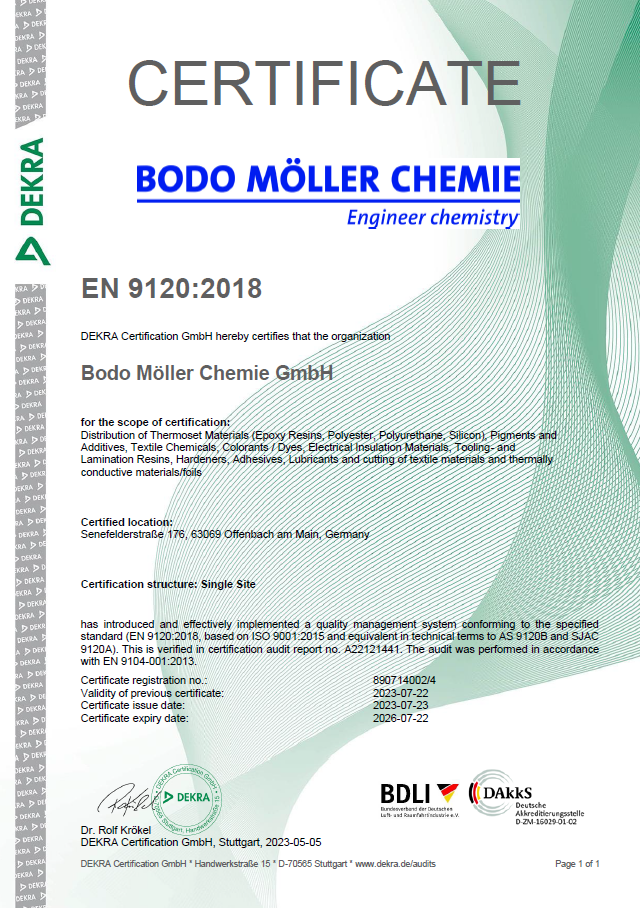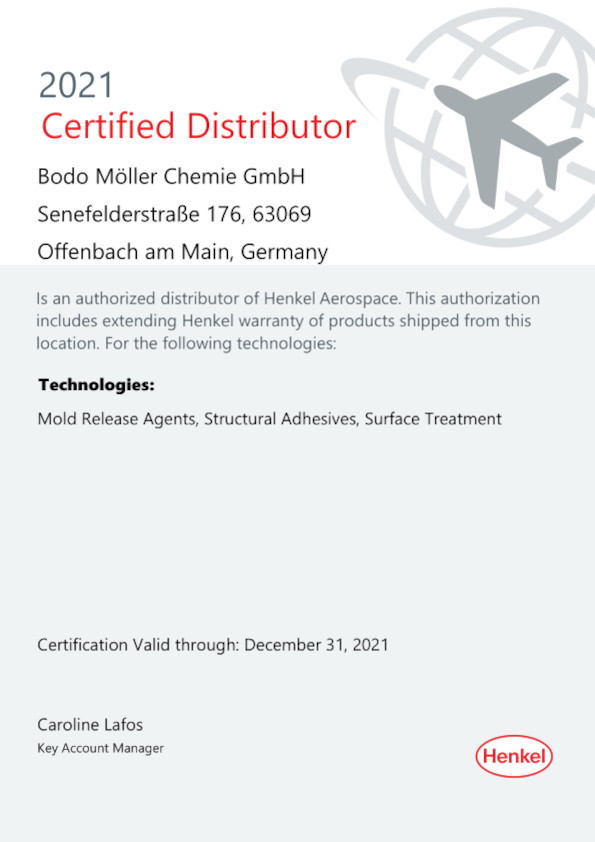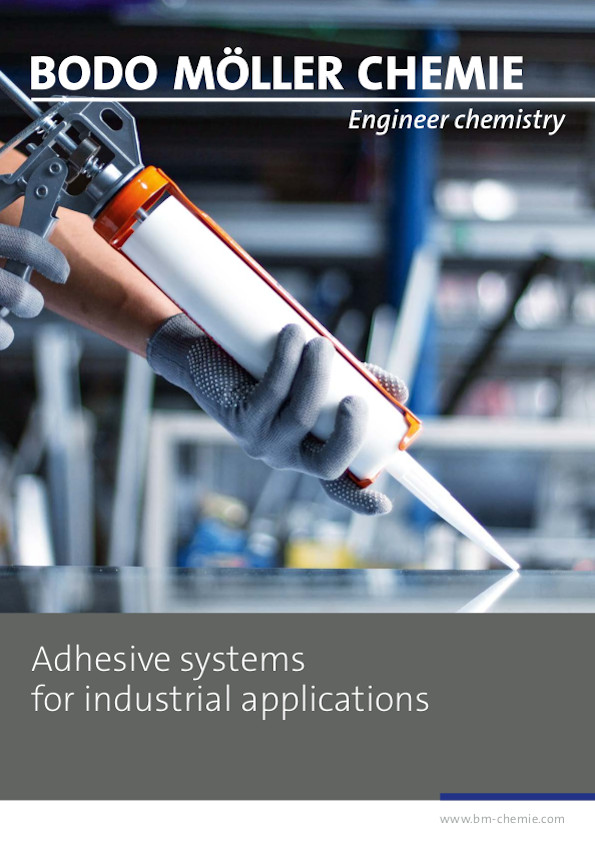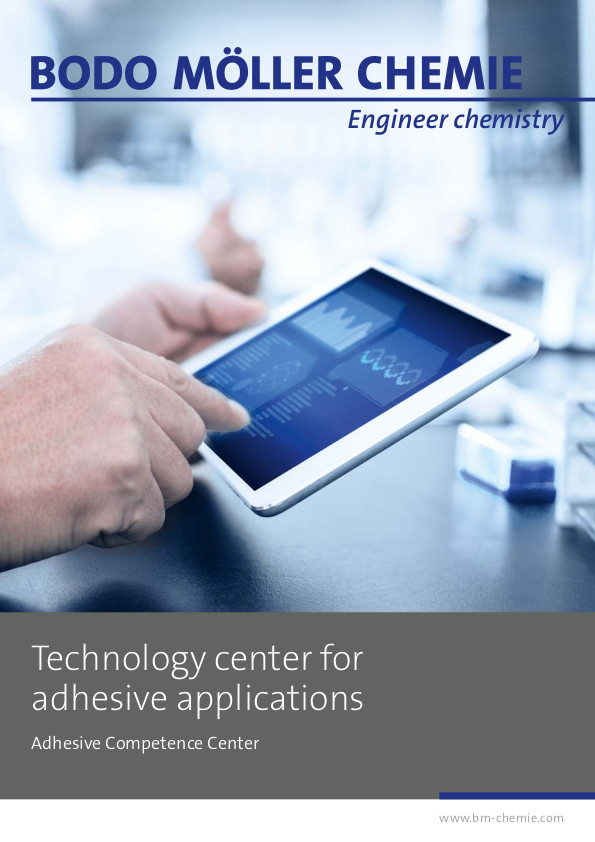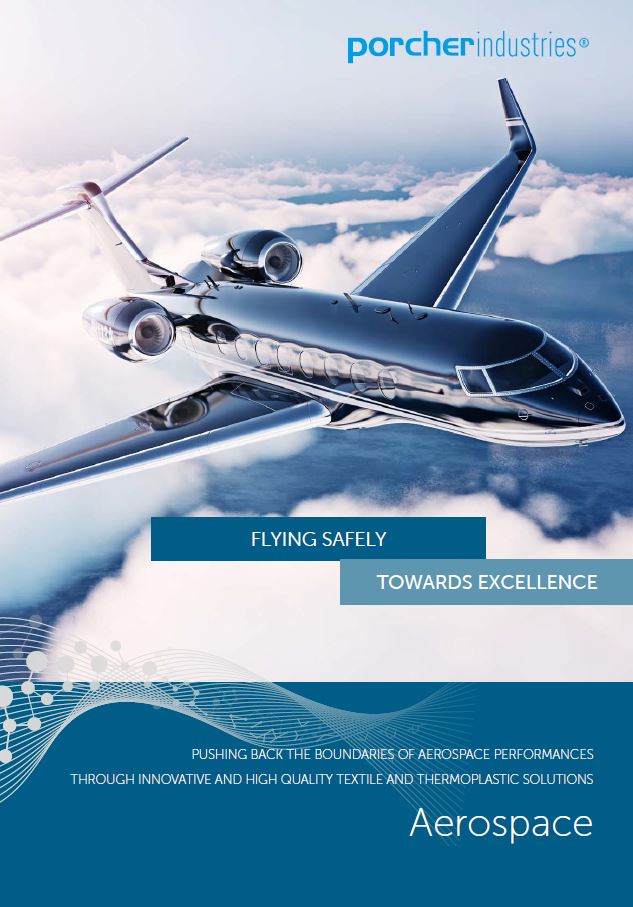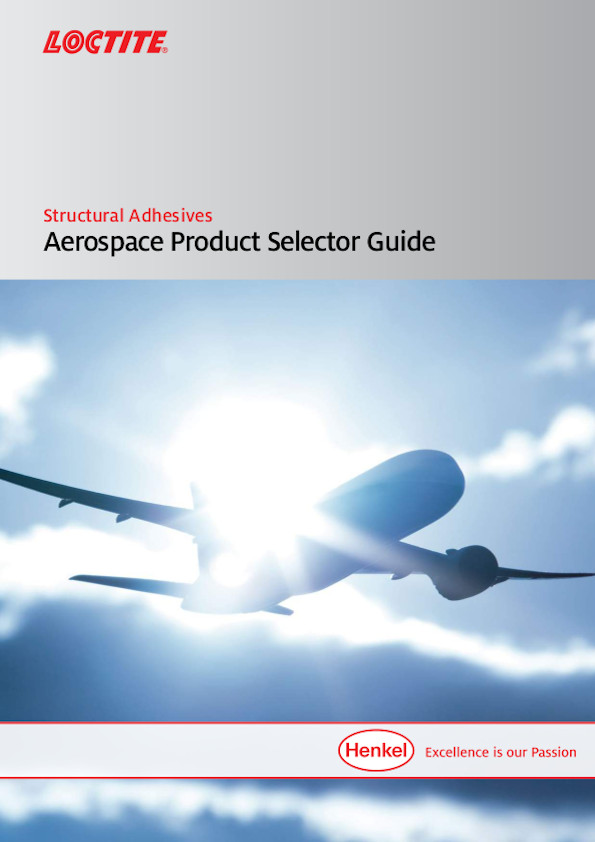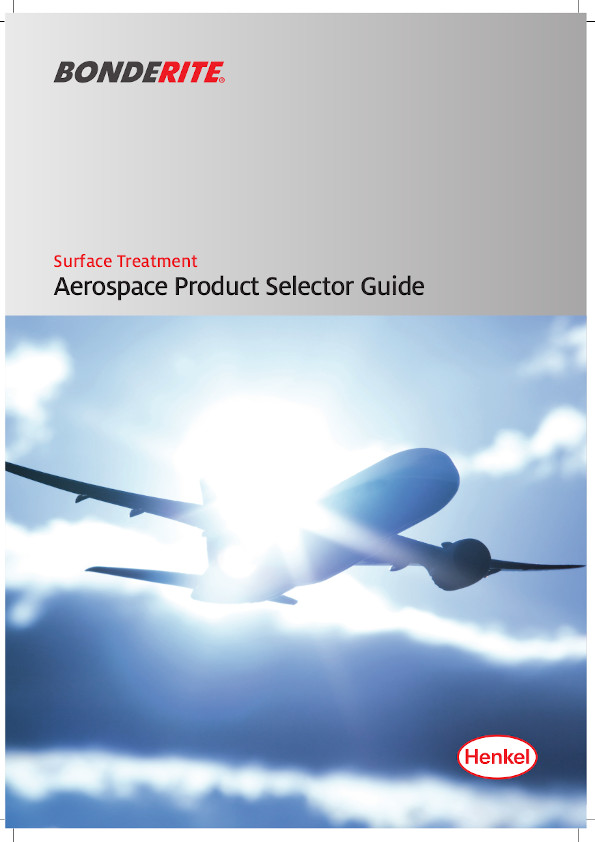Head Office Germany
Bodo Möller Chemie GmbH
T +49 69 838326-0 info@bm-chemie.de
Austria / Slovenia
Bodo Möller Chemie Austria GmbH
T +43 1 205190 7050 info@bm-chemie.at
Switzerland
Bodo Möller Chemie Schweiz AG
T +41 52 2031930 info@bm-chemie.ch
Benelux
Bodo Möller Chemie Benelux N.V.
T +3232352135 info@bm-chemie.be
Denmark
Bodo Möller Chemie Denmark Aps
T +45 48 163470 info@bm-chemie.dk
Finland
Bodo Möller Chemie Finland Oy
T +358 9 6829010 info@bm-chemie.fi
France
Bodo Möller Chemie France SAS
T +33 243 240429 info@bm-chemie.fr
France Sales Office Lyon
Bodo Möller Chemie France SAS
T +33 478 982337 info@bm-chemie.fr
Estonia / Latvia / Lithuania
Bodo Möller Chemie Baltics OÜ
T +370 686 82 933 info-baltics@bm-chemie.com
Poland
Bodo Möller Chemie Polska Sp. z o.o.
T +48 61 822 09 75 info@bm-chemie.pl
Sweden
Bodo Möller Chemie Sweden AB
T +46 31 698952 info@bm-chemie.se
Norway
Bodo Möller Chemie Norway NUF
T +45 48 16 34 70 info@bm-chemie.no
Russia
Bodo Möller Chemie Russia LLC
T +7 495 139 60 00 info@bm-chemie.ru
Czech Republic
Bodo Möller Chemie Czech & Slovakia, s.r.o.
T +420 239 045301 info@bm-chemie.cz
Slovakia
Bodo Möller Chemie Czech & Slovakia, s.r.o.
T +421 2 33006732 info@bm-chemie.sk
Hungary
Bodo Möller Chemie Hungary Kft.
T +36 34 782019 info@bm-chemie.hu
Croatia
Bodo Möller Chemie Austria GmbH - Podružnica Zagreb
T +385 91 2620276 info-hr@bm-chemie.at
Romenia
Bodo Möller Chemie Austria GmbH – Sucursala Bucuresti
T+40 744 657 557 info@bm-chemie.ro
United Kingdom / Ireland
Bodo Möller Chemie UK Ltd.
T +44 161 804 2029 info@bm-chemie.co.uk
Spain
Bodo Moeller Chemie Spain S.L.
T +34 916 286 909 info@bm-chemie.es
Portugal
Bodo Moeller Chemie Portugal Unipessoal LDA
T +351 937 198020 info@bm-chemie.pt
Italy
Bodo Möller Chemie Schweiz AG —Succrusale Milano
T +41 52 2031930 info@bm-chemie.ch
South Africa / Sub-Saharan Africa - Sales Office Port Elizabeth
Bodo Möller Chemie South Africa (PTY) Ltd.
Sales Office Port Elizabeth
T +27 41 3641335 info@bm-chemie.co.za
South Africa / Sub-Saharan Africa - Sales Office Johannesburg
Bodo Möller Chemie South Africa (PTY) Ltd.
Sales Office Johannesburg
T + 27 11 4501745 info@bm-chemie.co.za
Egypt - Sales Office Cairo
Bodo Moeller Chemie Egypt SAE Sales Office Cairo
T +20 2 226963-91/ -92/ -93 info@bm-chemie.com.eg
Egypt - Sales Office Alexandria
Bodo Moeller Chemie Egypt SAE
Sales Office Alexandria
T +20 3 3922061 info@bm-chemie.com.eg
Egypt - Production Site Sadat City
Bodo Moeller Chemie Egypt SAE
Production Plant Sadat City
T +20 4 82656041 info@bm-chemie.com.eg
Morocco
Bodo Moeller Chemie Morocco SARLAU
T +212 522 262732 info@bm-chemie.ma
Kenya
Bodo Moeller Chemie Kenya Ltd.
T +254 0788071608 info@bm-chemie.co.za
Nigeria
Bodo Moeller Chemie Nigeria FZE
T +971 4 8813833 info@bm-chemie.ae
Middle East
Bodo Möller Chemie Middle East FZE
T +971 4 8813833 info@bm-chemie.ae
China
Bodo Moeller Chemie (Shanghai) Co., Ltd.
T +86 21 64750182 info@bm-chemie.cn
China
Bodo Moeller Chemie Hong Kong Ltd.
T +86 21 64750182 info@bm-chemie.hk
Vietnam
Bodo Moeller Chemie Vietnam Co., Ltd.
T +84 9 63 69 45 65 info-vn@bm-chemie.com
India
Bodo Moeller Chemie India Private Ltd.
T +91 22 49741848 info@bm-chemie.in
Israel – Sales Office Tel Aviv
BM Chemie Israel Ltd.
Sales Office Tel Aviv
T +972 36 377366 info@bm-chemie.co.il
Israel – Sales Office Tel Aviv
BM Chemie Israel Ltd.
Sales Office Afula
T +972 36 377366 info@bm-chemie.co.il
Bodo Moeller Chemie (Thailand) Co., Ltd.
Bodo Möller Chemie Thailand Sales Office (a business unit of Sanet Trade and Services Co., Ltd.)
T +66 2-737-6420 Ext. 61 info-th@bm-chemie.com
USA
Bodo Moeller Chemie Corp.
T +1 770 2952288 info-us@bm-chemie.com
Mexico
Bodo Möller Chemie México, S. de R.L. de C.V.
T +52 222 2405168 info@bm-chemie.mx
Region/Land** Please make your Selection -- Europe -- Germany Austria / Slovenia Switzerland France Benelux Spain Portugal Italy United Kingdom / Ireland Denmark Sweden Norway Finland Poland Estonia, Latvia & Lithuania Czech Republic Slovakia Hungary Croatia Romania Russia -- Africa -- Egypt Morocco Kenya Nigeria South Africa / Sub-Saharan Africa -- Asia-Pacific -- India China Thailand Israel Vietnam Middle East -- America -- USA Mexico
Your Industry** Please select your industry Electronics Composites & Tooling Additive manufacturing Automotive Bus & Truck Rail Aerospace & Defense Marine E-mobility Sports & Leisure Packaging & Paper converting Wind energy DIY Plastic processing industry Lubricants Textile industry Construction & CASE (Coatings)
Company*
Title
Firstname**
Lastname**
City
ZIP
Phone
Email**
Message**
Agreement
